
Discovering your menstruation as a spiritual practice
Yasmine understands her menstruation as a spiritual practice and shares in this interview how she is connecting more with her own body through cycle awareness.
You exercise a lot and eat healthily, but you don’t get your period? Then you may be suffering from Hypothalamic Amenorrhoea. Julia tells us in an interview what exactly this is, what the causes are, and what you can do about it. She recently published her book Hypothalamic Amenorrhoea: When periods stop despite a healthy lifestyle and knows all about HA!
My name is Julia and I am a hormone coach. I help women to normalize their menstrual cycle and to get their hormones back into balance, for example after stopping the pill. I coach many women who suffer from PCO syndrome or Hypothalamic Amenorrhoea.
Often, we work against our bodies and go beyond our limits – especially women who suffer from Hypothalamic Amenorrhoea. So many women – including myself in the past – have somehow internalized that we have to trick our bodies and that they “betray” us when we gain a little weight, for example, or when our hormones get out of balance.
I see it differently. Our body sends us signals and reacts quite cleverly to everything that comes its way. Our body always wants to keep everything in balance and keep us alive. However, we have usually lost complete access to it and our intuition. We often don’t even try to go within ourselves and ask ourselves, “What do I and my body need at this moment to get back into balance in the long run?” Instead, we prefer to go for the quick fix, which usually puts us even more out of balance (e.g., eating less and doing even more intense exercise to make sure we lose weight). I hope that my book will help us to be more kind to our bodies by understanding that we don’t have to be so hard on ourselves and our bodies. Why can’t we look in the mirror and celebrate and honor it?
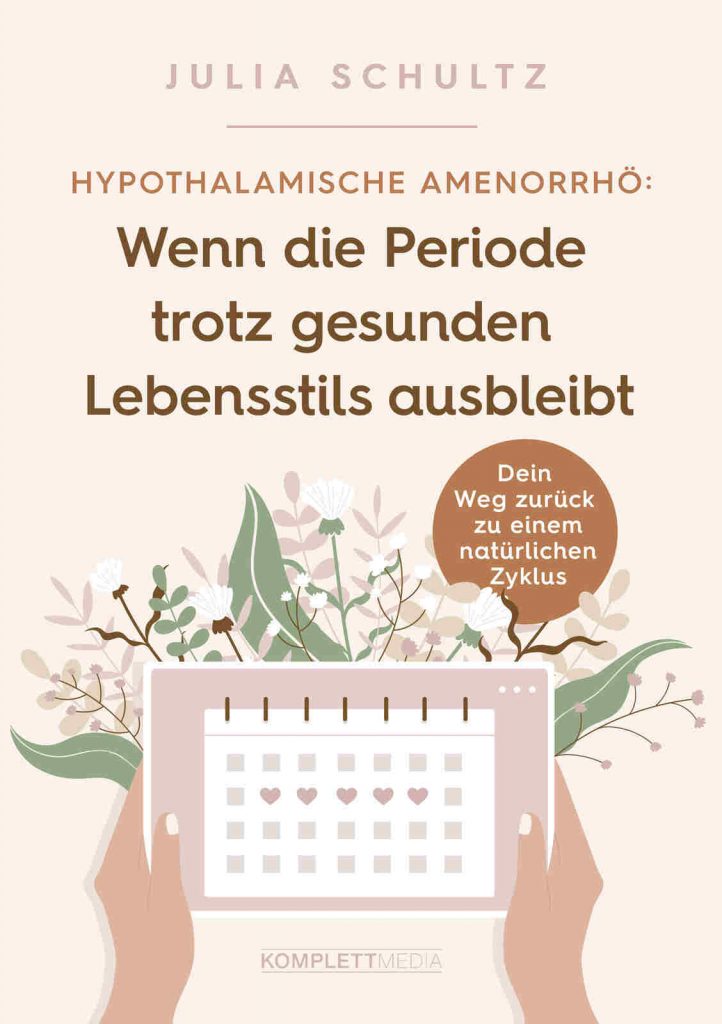
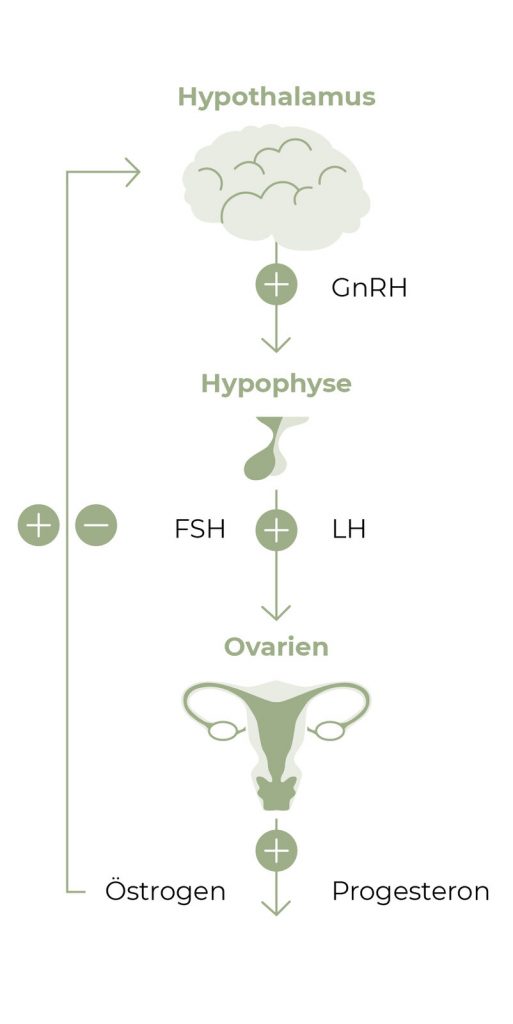
With Hypothalamic Amenorrhoea, the period is completely absent for several months. The reason is usually stress due to an imbalance in energy intake (how much do I eat?) and energy consumption (how much do I burn, e.g., during sports?). The problem begins in the hypothalamus, the hormonal control center in the brain. It reacts relatively sensitively to the stress of any kind and shuts down certain hormones during HA. Thus, with Hypothalamic Amenorrhoea, we often see low levels of the following hormones:
Often this hormonal imbalance occurs because women begin to eat very healthy and often too little, while at the same time ramping up their exercise. But even a low-carb diet that takes off a few kilos can be enough to cause a woman to stop having her period. Society’s image of what a healthy and attractive woman should look like often plays a role here. Women with HA are often very perfectionistic, feel enormous pressure to perform, and have difficulty expressing their feelings and needs because they are (unconsciously) afraid of rejection or of not being good enough.
I was diagnosed with PCOS in my early 20s after my periods stopped for a long time. However, I was not a “typical” PCOS patient, always very slim and healthy. Today I know that the image of HA and PCOS can often blur into one another. At the same time, many women with Hypothalamic Amenorrhoea get a false PCOS diagnosis, which can be fatal. For me, stress was a huge driver of my cycle problems.
My dad died in an accident when I was 18 years old. This is where I suddenly found myself with enormous emotions that I couldn’t handle. I was in the middle of my A-levels and didn’t allow myself to miss even one day of school (I was a straight-A student, and it stayed that way even after the blow). At the same time, I was suddenly living alone in a huge house, it was hard for me to ask for help and I always thought I had to be strong. But on the inside I was broken.
I started jogging because it gave me a sense of freedom. At the same time, I developed an eating disorder that accompanied me for two years. I knew from the beginning that I had to do something, but it was so hard for me. Very slowly I fought my way out of it. Along the way, I tried and learned so much. The most important thing for me was when I learned to give space to my feelings and express them, to invite more relaxation into my life, to eat normally and sufficiently again, and above all to trust my inner voice more than all the talk on the outside, my period came back. Today I live in harmony with myself and my body. My body shows me this through a very regular cycle. I would never have thought that was possible back then.
There are quite a few reasons for not getting your period. The most common are:
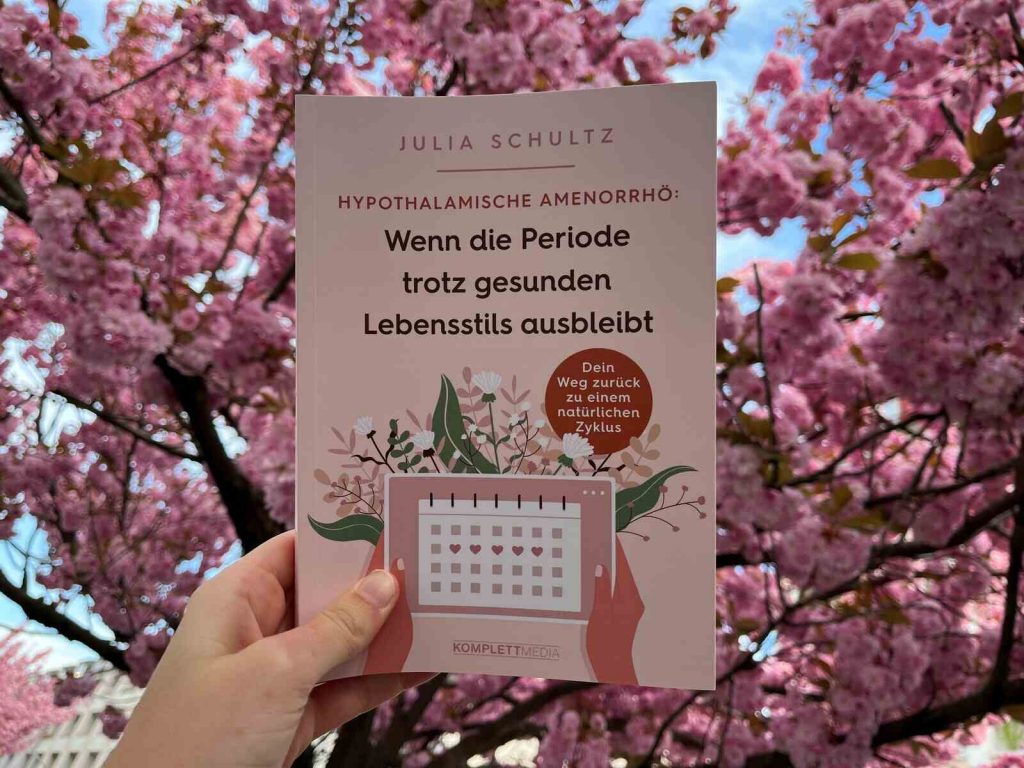
Hormones control quite a lot of our body as they bring information to the individual cells. Hair loss, for example, can be a sign of a lack of estrogen and slow metabolism and is particularly common with Hypothalamic Amenorrhoea. In HA, there is almost always a low estrogen level and the imbalance in the energy balance also regulates the metabolism downwards. In addition, estrogen is very important for our mucous membranes and our libido. As a result, other symptoms of HA are dry vaginal mucous membranes and less desire for sex. In addition, there is dry skin and the feeling of being cold all the time.
The most important point for athletes is certainly to provide the bodies with enough energy. Athletes need to eat enough so that the body remains efficient and can regenerate well. All macronutrients (carbohydrates, proteins, and fats) should also be consumed in sufficient quantities. I can only recommend working with a nutritionist. In addition, time off is enormously useful and essential. It is a fallacy that we must train harder and harder to achieve success. However, the magic happens in the regeneration phases and we can also integrate our menstrual cycle into our training in a meaningful way.
Whereas in hypothalamic amenorrhoea there is often a deficiency of certain hormones, in PCOS we tend to find certain hormones in excess. For example, with HA we often have a low level of LH and the quotient of LH and FSH is less than two or even less than one. With PCOS, the picture often looks quite different. The pituitary hormone LH is further above the level of FSH and the LH/FSH quotient is often above two. The male hormones are also very different. In PCO syndrome, at least one male hormone (e.g., testosterone, androstenedione, or DHEA-S) is elevated. In HA, the male hormones are usually more in the lower normal range.

It is important to get out of the diet mentality. The female body needs energy for the cycle to settle. We can allow ourselves to eat more. Since many women tend to consume more “healthy” foods first, we should say straight away that we should eat foods with a higher energy density. Lettuce has a low energy density. Sweet potatoes have a little more. So dare to eat more carbohydrates and good fats!
If you do a lot of exercises, it may be a good idea to take some of the intensity out or reduce the volume. Some people also benefit from taking a break from exercise.
I wish we would learn to listen to our inner voice much more. So often we feel driven because we give more weight to the words on the outside and completely lose sight of our own needs or put them on the back burner. If we manage to strengthen this inner voice, we automatically have a pretty good compass for our life and our (hormonal) health. Dare to go your own way – even if nobody has gone it before you! Everything is possible!
Note: This interview often refers to “women” and the “female” body and cycle. However, not all women have a menstrual cycle, and not all who have a uterus identify as a woman. Trans, non-binary or gender-neutral people can also bleed monthly and thus have a menstrual cycle. This is why at Vulvani we use the term menstruators or menstruating people and do not refer to women or girls. We also try to replace the term “female” cycle with “menstrual” cycle to give a more inclusive view of the cycle and its phases. This is our attempt to be linguistically inclusive of all people who have experiences of the menstrual cycle, periods, and uteri.
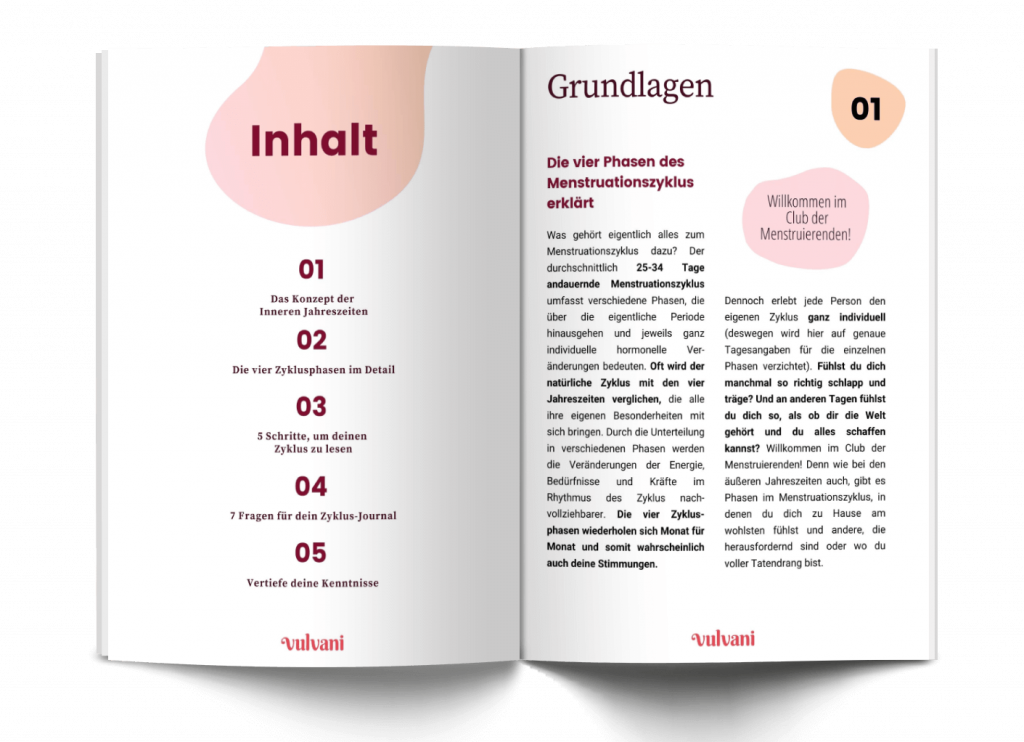


Yasmine understands her menstruation as a spiritual practice and shares in this interview how she is connecting more with her own body through cycle awareness.
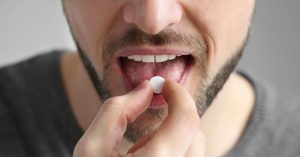
What options are there for male birth control? Ailsa delivers an overview of what is available now, and what may come in the future.
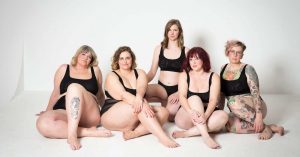
Sustainable underwear? The founders of TUKEA talk about fair labour conditions, body diversity and body literacy.
…and empower countless women to make empowered choices about their bodies!

